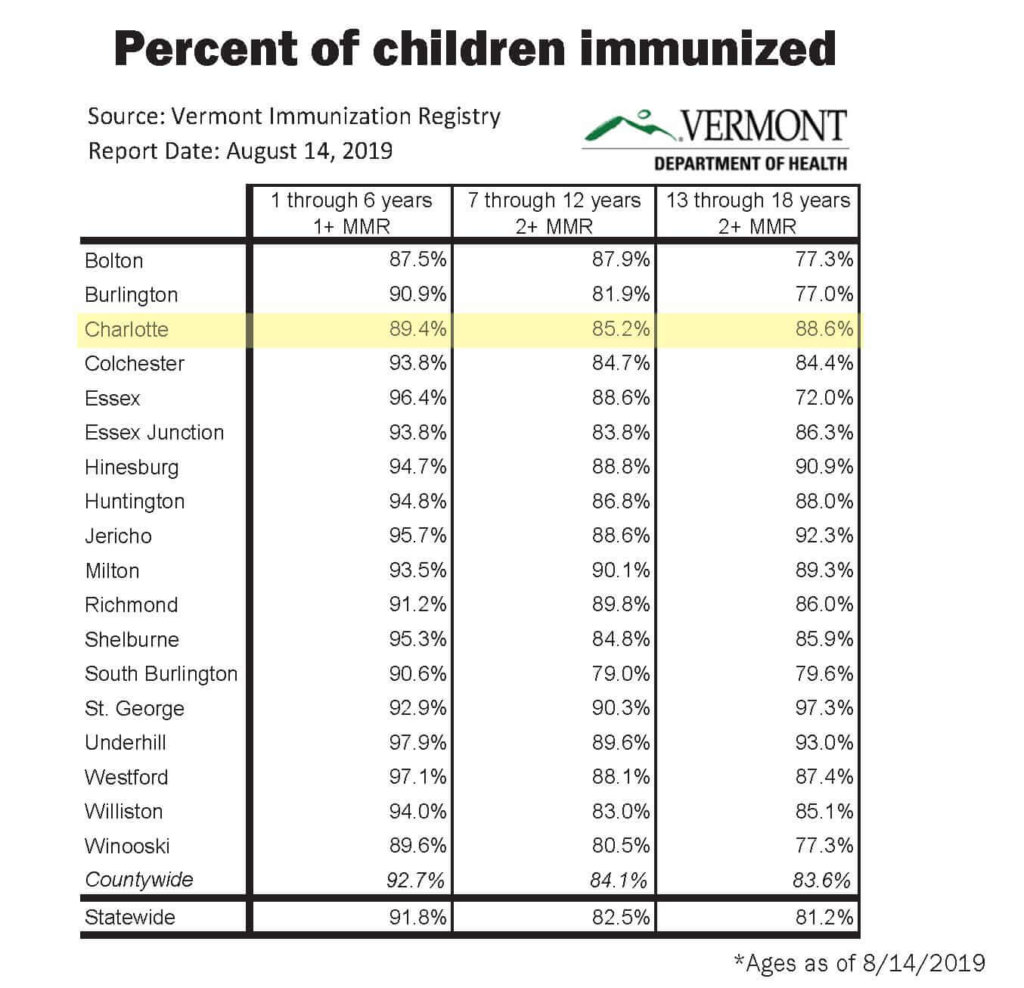Measles on the rise
 We need to do better to protect ourselves and our neighbors
We need to do better to protect ourselves and our neighbors
Vermonters should feel very lucky right about now. According to the federal Centers for Disease Control and Prevention (CDC), 1,182 cases of measles have been diagnosed in 30 states, including New Hampshire, New York, Massachusetts and Maine. In contrast, there were only 63 cases in the year 2010.
Many older Americans have had measles, but most of us are immune through routine vaccination. The current cases are mostly among un-vaccinated people who had contact with the virus through air travel or others who had traveled internationally. Measles can be prevented by two vaccines, currently recommended at age 12 months and again between four and six years of life. The vaccine we use in the United States is called “MMR” for “Measles-Mumps-Rubella,” and two doses are 97 percent effective at preventing measles infection.
Counseling parents and families about vaccines is part of my job as a pediatrician. I have also answered questions on behalf of the Vermont Department of Health on the It’s OK to Ask website regarding vaccines, and I pull from my experience in primary care as well as previous experience working on CDC immunization research and working in the developing world. I have seen tetanus, polio, cholera and other deadly infectious diseases first hand.
Many Vermonters ask, “Why do we need this vaccine?” Many people are not aware that three in 1,000 measles cases lead to fatal complications, typically neurological or respiratory. Approximately seven to 10 years after measles infection, some humans can get SPPE (subacute sclerosing pan encephalitis), a degenerative, fatal complication. The measles virus, also known as rubeola, can live in an airborne space for two hours after contamination: it is highly contagious.
Vaccination of children against measles can prevent personal infection and also the spread of the disease. Complete vaccination against life-threatening infectious illness protects the very young, the old and those with weak immune systems.
In recent Vermont Department of Health data, Charlotters hover right around the state average for measles vaccine coverage. Altogether Vermont falls just below the national rate of vaccination of 92.7 percent. We need to do better to keep this epidemic from getting much worse. Let’s get measles back to eradicated status again and protect our neighbors.
